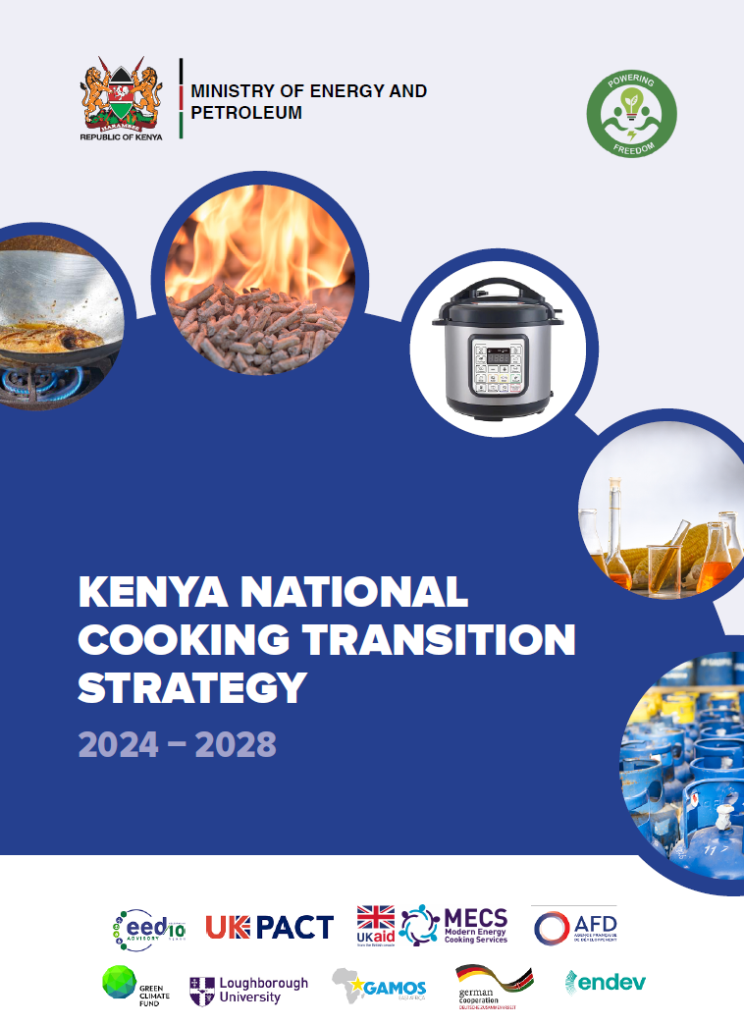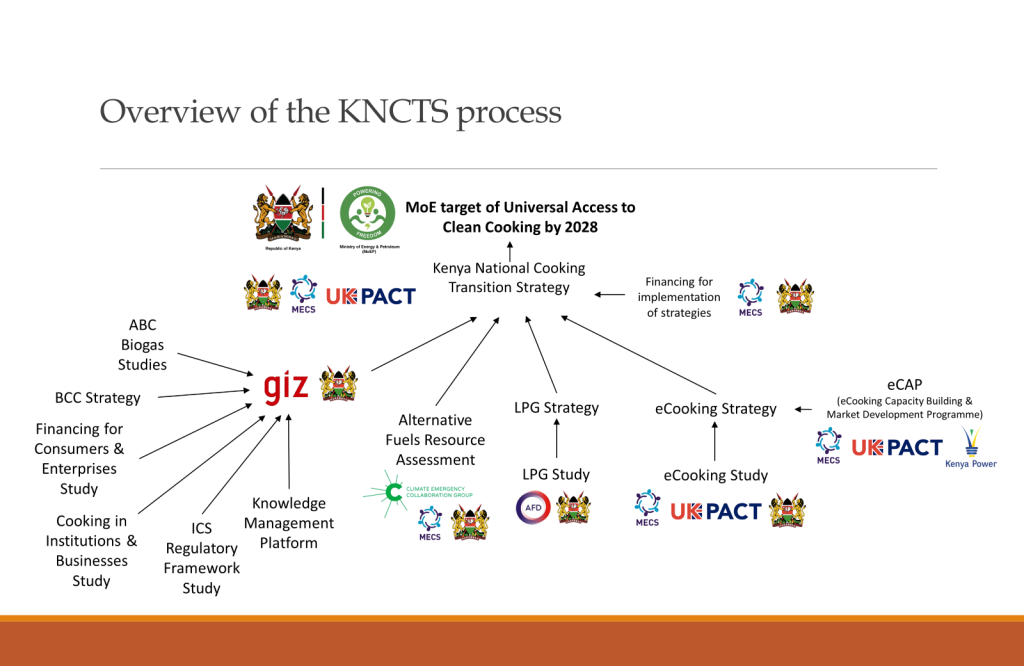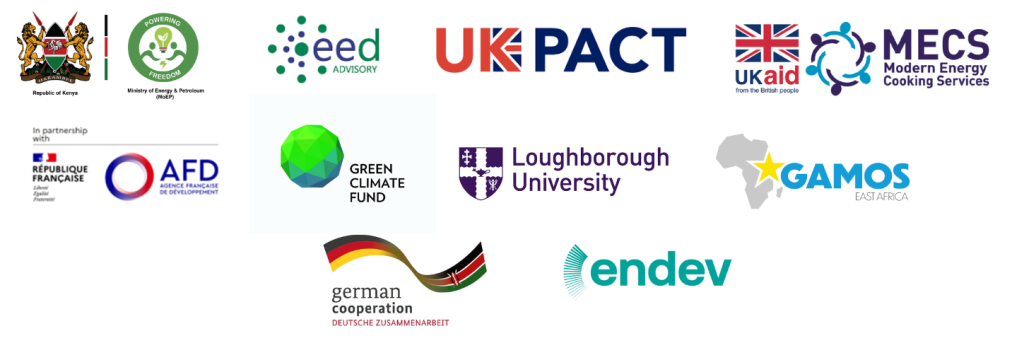
The strategy is the first multi-fuel clean cooking strategy on the continent, offering a blueprint for others to position clean cooking as a key development priority with multiple complimentary solutions. The KNCTS aims to achieve universal access by 2028 by transforming the cooking sector in Kenya, focusing on sustainability and profitability. It aims to reduce Kenya’s reliance on fossil fuels, generate employment, reduce greenhouse gas emissions, leverage carbon finance, increase public health, contribute to electricity utility revenue, and reducing the public debt burden.
In response to the request of the Kenyan government, Modern Energy Cooking Services (MECS) coordinated the delivery the new Kenya National Cooking Transition Strategy (KNCTS) (previously referred to as Kenya National Clean Cooking Strategy (KNCCS)).
Under the direction of the Ministry of Energy & Petroleum (MoEP), MECS partnered with EED Advisory as the lead contractor and regularly convened a Coordination Committee with a consortium of development partners, including Climate Compatible Growth (CCG), GIZ Energizing Development (EnDev) Programme, United Kingdom Partnering for Accelerated Climate Transitions (UK PACT), and Agence Française de Développement (AFD) to steer the development process. The committee included representatives from various Ministries, national institutions, sectoral associations, and the consortium of development partners, who supported different components of the strategy, including Deutsche Gesellschaft für Internationale Zusammenarbeit – Green Climate Fund (GIZ-GCF) .
This strategy aims to guide the country toward the goal of universal access through five interconnected action agendas (see the figure 1 below). Whilst the strategy is designed to provide an enabling environment for all clean cooking technologies, it focusses in on a mix of key enabling fuels/technologies that will both drive rapid adoption in the short term and create long-term sustainable pathways. The strategy recommends the creation of a dedicated clean cooking fund to manage the implementation budget totaling an estimated KES 65 billion (US$435 million) over five years and leveraging government resource allocations, private sector investments, carbon finance, public finance, philanthropic contributions, and development agency assistance.

Figure 2: Targeting the KNCTS’s 5-point Action Agenda
The consortium supported various studies, strategies, and programs to enhance the evidence base and market development for clean cooking fuels and technologies within the KNCTS.

Figure 3: Overview of the KNCTS Process
Explore related blogs to Kenya National Cooking Transition Strategy:
Partners
